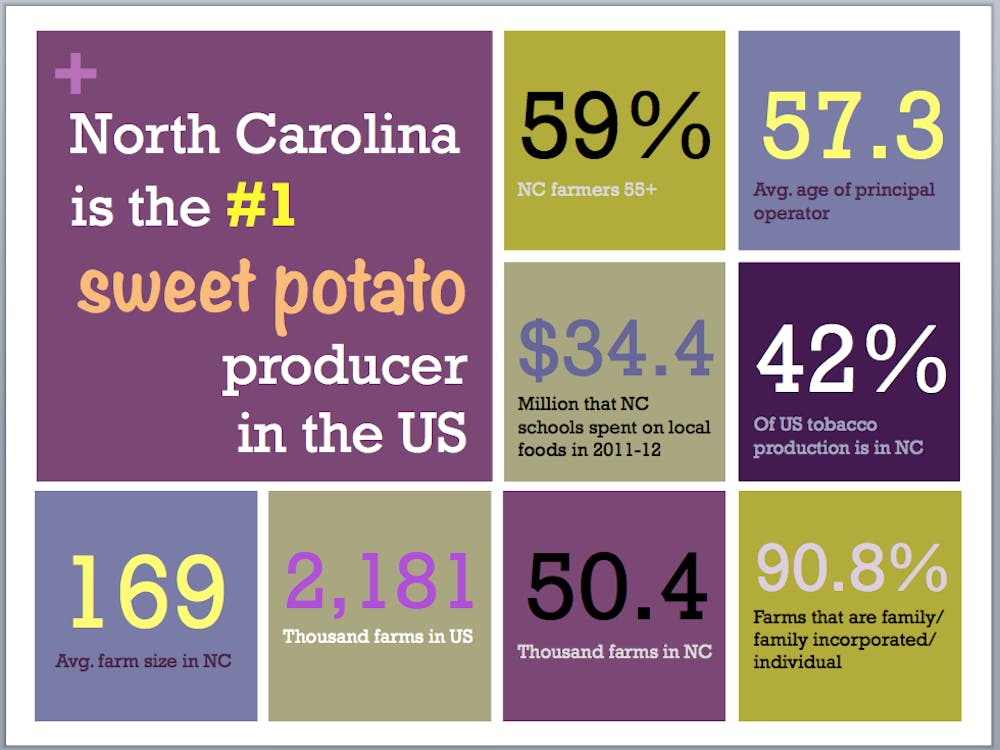Buy local. Buy organic. Buy cage-free. As a student on a tight budget, this can translate to money, more money and even more money.
The assumption that organic, local and humane food costs more is often true. Yet, as college students beginning our adult lives, we need to start setting standards for ourselves that will aid us and the community around us in the future.
According to the North Carolina Department of Agriculture and Consumer Services, as of 2011, North Carolina has been home to around 50,000 farms. Of these farms, more than 90 percent are run by families, individuals or family corporations. We live in a hotbed of easily accessible local farms that produce fresh food. Access to these local farmers is easy. You can go to the Thursday afternoon farmer’s market next to the Elon Community Church or stop by the Company Shops Market in Burlington.
Buying organic, humane and local makes a big difference for you, the local farming community and the environment. Making a simple change in your shopping habits can affect more people than you think.
Don’t be fooled by the dollar signs. You are not just paying for the same food as the one dollar-cheaper equivalent sitting two containers down. You are financing a farmer in a North Carolina community, supporting the humane treatment of animals, and encouraging farmers not to use harmful pesticides on their crops.
As college students, we can skip that extra Cookout run or Panera sandwich to buy health-conscious, responsible food. Buying organic, local and humane food is not something that requires an in-depth knowledge of the agricultural industry. It’s about choosing one product over another and taking the time to really look at what you are picking up at the grocery store.
For example, just about every student on campus buys eggs. Instead of just picking up the first carton you see, go for the one that says free-range. Go for the one that’s not made of plastic foam so you can recycle it. These simple choices can lead to a much more knowledgeable and rewarding purchasing process that also spreads awareness of buying environmentally responsible foods.
Taking the time to pick out your groceries can also improve the value of the food you consume.
Instead of buying all your vegetables in the freezer section, go to the produce section and buy fresh vegetables that are higher in vitamins. In the place of processed, sugar-filled jams and jellies, buy products made by those in your community. Try to get to know the person who made your food.
Another category of food to look out for is humanely raised food. This includes terms such as “free-range,” “cage-free” and “certified humane.” Foods with these labels are supposed to be positive forces for animal welfare, in that animals should be able to move around and exercise.
Most of these labels also include the prevention of the use of growth hormones, cages and crates. Be aware buying foods with these labels is a step in the right direction, but not all labels are necessarily regulated. Some allow beak cutting and forced molting through starvation. The absolute best thing to do is to see where the chickens are raised.
Not only will you be a positive force for local businesses, you will also be doing something good for yourself. Consuming foods without added preservatives benefits your body in both the short and long term. Spend that extra dollar on a local farming community and get the most nutrition out of what you eat.
Fresh is always better than frozen. Help yourself and help the community.


